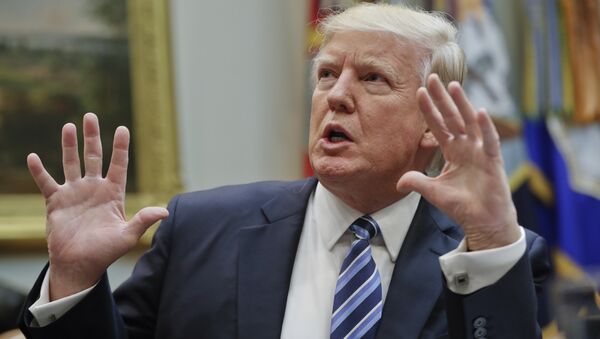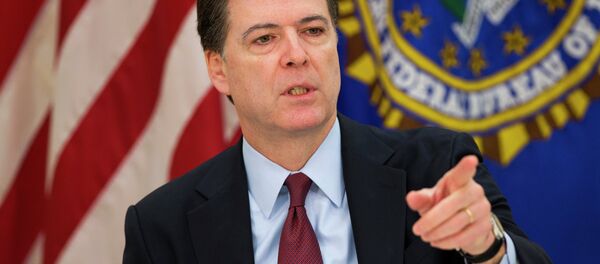In a scathing opinion piece in The Hill on Tuesday, US intelligence community veteran Gen. Michael Hayden, who has held posts at the top of the NSA and CIA, wrote that Trump’s Twitter escapades hurt the US both by undermining Trump’s credibility and by giving foreign intelligence services a far-too-intimate understanding of the president’s moods and whims.
Notably, he berated Trump’s six-week escapade over “tapes” he sort-of claimed to have of conversations with former FBI Director James Comey, which he later revealed to never have existed.
The reports by foreign intelligence services based on these Twitter wars would be embarrassing, Hayden writes: "You can almost anticipate the language in the report: 'Mr. Prime Minister, you need to know that President Trump appears to be what the Americans call a bullshitter.'"
"Good stuff for our adversaries to know in upcoming sessions with POTUS and hardly designed to maximize the president’s leverage," the general opined. Unpredictability may have been a winning trait on the campaign trail, but "I’m not so sure that that is true in all cases," he warned ominously.
Experienced intelligence reporters say that spy agencies compile profiles of foreign heads of state. Intelligence analysts look at what kind of person the leader is, how the person leads and their profiles match up with their self-presentation and ambitions. Next, analysts might look to offer their own expectations for the leader, and how best to leverage this guidance for domestic advantage.
This is how former CIA targeting officer Nada Bakos described one method intelligence services outside the US might use to guide dealings with America’s 45th president in a piece for The Washington Post on June 23. Targeting officers work in the CIA’s Directorate of Operations (DO), where they plan and implement “foreign intelligence collection, counterintelligence, and Covert Action operations,” the CIA states on its website, in order to "identify new opportunities for DO operational activity and to enhance ongoing operations."
Trump’s "frequent strong statements in reaction to news coverage or events make it appear as if he lacks impulse control. In building a profile of Trump, an analyst would offer suggestions on how foreign nations could instigate stress or deescalate situations, depending on what type of influence they may want to have over the president," Bakos wrote.
These profiles are "quite useful to gauge how a leader will react or to develop a game plan to guide encounters with him or her," according to Hayden, who led the NSA from 1999 to 2005 before directing the CIA from May 2006 to February 2009.
"The president’s Twitter tsunami must be a goldmine for foreign services (including friendly ones) in developing his profile."
The president’s Twitter account is according to him a tool to communicate directly with the nation without the traditional intermediaries of the US mainstream media, but it has also backfired to the detriment of the president’s agenda: Federal judges, for instance, cited Trump’s Twitter feed when ruling that his travel ban was unconstitutional. (On Monday, the US Supreme Court decided it would hear the case on the ban later this year.)
"Fortunately for him, the platform lets him speak directly to supporters whenever he chooses," Bakos said. "Unfortunately for the rest of us [in the US], they aren’t the only ones listening."




